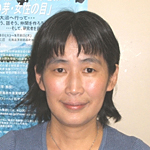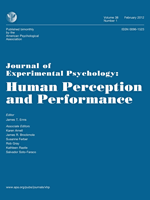 The week at Retraction Watch featured the results of a massive replication study, yet another retraction for Diederik Stapel, and a messy situation at PLOS. Here’s what was happening elsewhere: Continue reading Weekend reads: Ghost authors proliferate; science goes to the movies; pricey grant fraud
The week at Retraction Watch featured the results of a massive replication study, yet another retraction for Diederik Stapel, and a messy situation at PLOS. Here’s what was happening elsewhere: Continue reading Weekend reads: Ghost authors proliferate; science goes to the movies; pricey grant fraud
Court grants Toronto researchers review of misconduct findings
A Canadian court has granted a review of two researchers’ application to quash the findings of a university investigation that found signs of falsified data, according to the researchers’ lawyer.
Yesterday, the court ruled that the application by Sylvia Asa and her husband, Shereen Ezzat, to quash the University Health Network investigation’s findings be reviewed by a full panel of the divisional court.
That review should take place within the next few months, Brian Moher, the researchers’ attorney, told us. The pair are pleased with the outcome, Moher told Retraction Watch:
Continue reading Court grants Toronto researchers review of misconduct findings
“Our manuscript unintentionally failed to meet academic and publication standards”
Authors of a 2014 review paper about the use of “as needed” medications by people with mental health diagnoses are retracting it, but we’re scratching our heads as to why.
The retraction appears in “The experiences of mental health professionals’ and patients’ use of pro re nata (PRN) medication in acute adult mental health care settings: a systematic review protocol of qualitative evidence,” published by The JBI Database of Systematic Reviews and Implementation Reports.
From the abstract of the paper:
Pro re nata is a Latin phrase meaning “for an unforseen need or contingency”…The authors of the systematic review found that although the practice of using “as required” medication is common there is no good evidence of whether this is the best way of helping people to be less agitated when compared to being given a regular dose of medication.
We’re not entirely sure what went wrong here. This is the full contents of the note:
Continue reading “Our manuscript unintentionally failed to meet academic and publication standards”
Trachea surgeon Macchiarini acted “without due care,” but is not guilty of misconduct: Karolinska

Following an investigation, Karolinska Institutet has found that surgeon and visiting professor Paolo Macchiarini acted in some cases “without due care,” but that his behavior “does not qualify as scientific misconduct.”
Karolinska’s Vice Chancellor has also recommended that Macchiarini submit an unspecified number of corrections “to clarify and rectify the failings that the inquiry has brought to light.”
Macchiarini is most well-known for pioneering the creation of tracheas from cadavers and patients’ own stem cells. However, the glow of his success was diminished somewhat after four Karolinska surgeons filed a complaint, alleging Macchiarini had downplayed the risks of the procedure and not obtained proper consent, among other accusations.
An external review by Bengt Gerdin of Uppsala University concluded in May that Continue reading Trachea surgeon Macchiarini acted “without due care,” but is not guilty of misconduct: Karolinska
Yes, many psychology findings may be “too good to be true” – now what?
 Today, Science published the first results from a massive reproducibility project, in which more than 250 psychology researchers tried to replicate the results of 100 papers published in three psychology journals. Despite working with the original authors and using original materials, only 36% of the studies produced statistically significant results, and more than 80% of the studies reported a stronger effect size in the original study than in the replication. To the authors, however, this is not a sign of failure – rather, it tells us that science is working as it should:
Today, Science published the first results from a massive reproducibility project, in which more than 250 psychology researchers tried to replicate the results of 100 papers published in three psychology journals. Despite working with the original authors and using original materials, only 36% of the studies produced statistically significant results, and more than 80% of the studies reported a stronger effect size in the original study than in the replication. To the authors, however, this is not a sign of failure – rather, it tells us that science is working as it should:
Continue reading Yes, many psychology findings may be “too good to be true” – now what?
Three retractions for Oregon neuroscience student investigated by ORI
Journals have retracted three out of the four papers flagged by the Office of Research Integrity during its investigation of a University of Oregon neuroscience student, David Anderson.
Last month, when we first reported on the case, Anderson told us that he “made an error in judgment,” and took “full responsibility.” Two of the retraction notes say that Anderson “knowingly falsified data,” and cited the Office of Research Integrity case summary.
All three papers focus on memory.
The note for the first retraction, from the Journal of Experimental Psychology: Human Perception and Performance, reveals exactly how Anderson falsified data in the paper. It’s paywalled — tsk, tsk — but printed here in full:
Continue reading Three retractions for Oregon neuroscience student investigated by ORI
Researchers suspended in Japan for funding violations

Hokkaido University has suspended two of its professors after an investigation found “improper receipt of research funding.”
One member of the team was awarded more than 15 million yen (roughly $120,000 USD) in research grants from the Japan Society for the Promotion of Science (JSPS), according to the official statement (translated by One Hour Translation).
The researchers share a last name. Hiroyoshi Ariga, a professor of Biomedical and Pharmaceutical Science and the head of a university lab, was given 8 million yen in 2006 and 7.5 million in 2007. It appears that Sanae Ariga also received funds for a similar study, based on the translation:
Continue reading Researchers suspended in Japan for funding violations
A mess: PLOS mistakenly publishes rejected ADHD-herbicide paper, retracts it
![]() PLOS One has retracted a paper that links the most commonly used herbicide to ADHD, after it was “published in error.”
PLOS One has retracted a paper that links the most commonly used herbicide to ADHD, after it was “published in error.”
According to the note, the paper was “editorially rejected following peer review and consultation with the Editorial Board,” but ended up going through the production process anyway.
When we contacted the authors, they filled us in with more details.
Continue reading A mess: PLOS mistakenly publishes rejected ADHD-herbicide paper, retracts it
First author refuses to sign PNAS retraction after “key findings” are not reproduced
Two out of the three authors of a PNAS paper on mutations underlying lung diseases are pulling it after failing to reproduce key findings.
The paper, published in 2012, investigated how mutations in lung surfactant genes induce molecular changes that lead to lung pulmonary fibrosis and lung cancer might work. But follow-up work revealed problems. In the retraction note, last author Christine Kim Garcia and second author Christoper Cano, both at the University of Texas Southwestern Medical Center, write:
Current members of the C.K.G. laboratory are unable to reproduce key findings reported in the paper.
Here’s the retraction note in full:
Diederik Stapel ups count to 55 retractions

Dutch social psychologist and well-known fraudster Diederik Stapel is up to 55 retractions. He remains secure in his spot at #4 on our leaderboard.
The “fraudulent” Social Cognition article found, according to its abstract, that the more positively you perceive yourself, the less you need to compare yourself to other people. Conversely, negative thoughts were linked to more comparison to others. As an article in the New York Times points out, where Stapel’s faulty studies often succeeded is in telling us what we want to believe about the world.
Here’s the retraction note for the article:
Continue reading Diederik Stapel ups count to 55 retractions



